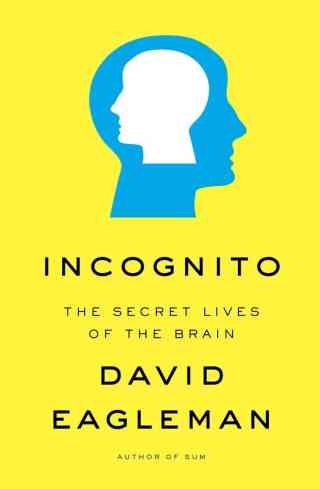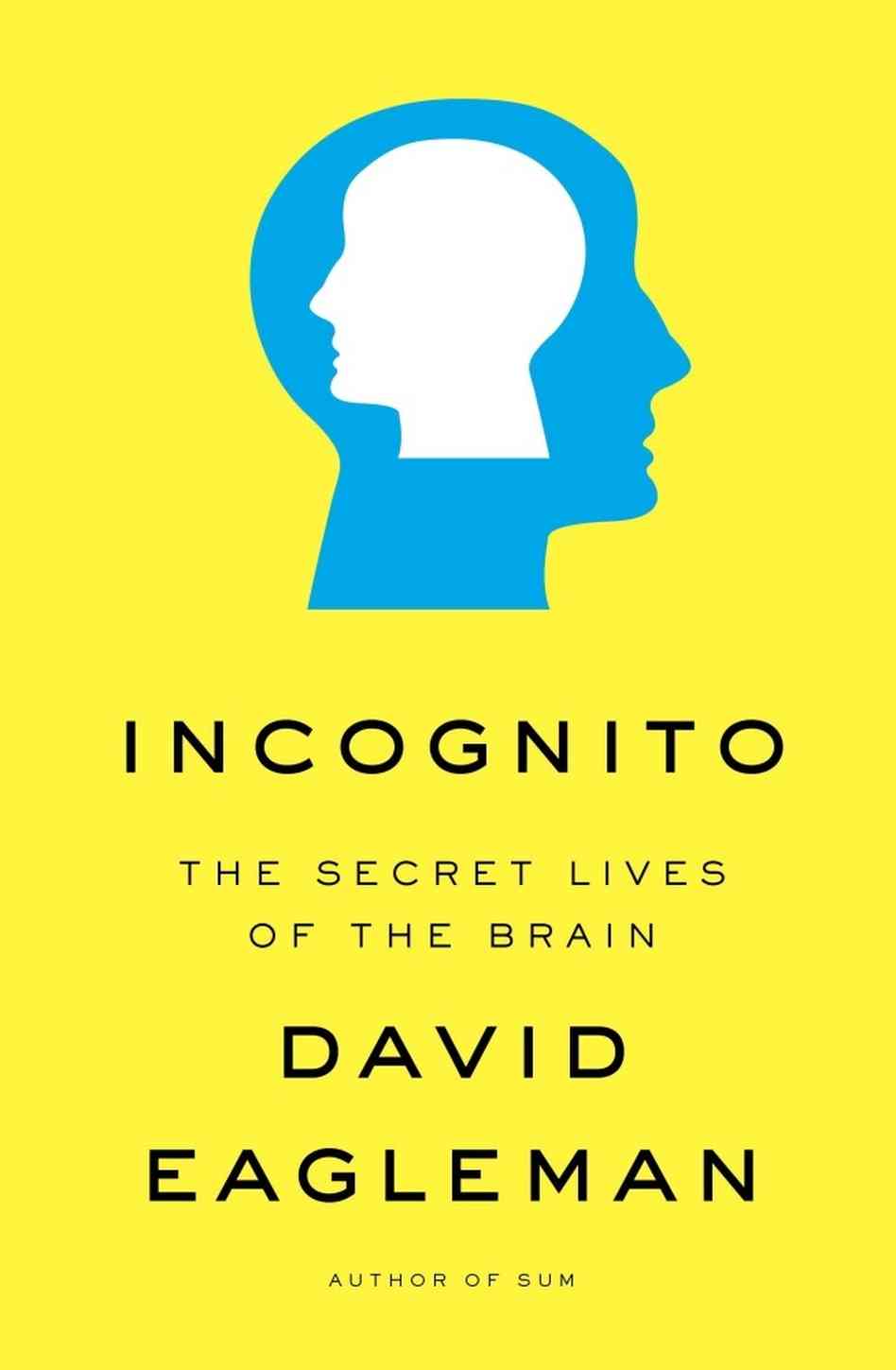Incognito: The Secret Lives of the Brain

Incognito: The Secret Lives of the Brain is a book with a psychological theme written by the renowned neuroscientist David Eagleman. Neuroscience is an interdisciplinary field that collaborates with many other fields such as biology, chemistry, computer science, etc. Although neuroscience is now considered a distinct discipline, it overlaps and, at the same time, plays an important role in psychology as in the two fields cognitive neuroscience and behavioral neuroscience. The field studies the human brain to a very profound level. It is a huge and ever-growing field concealing unsolved mysteries while holding tremendous promises. With that being said, David Eagleman does a wonderful job putting this “heavy science” into a book so skillfully that all readers can enjoy and learn from it. That, along with my personal interest in the field, is the reason why I am writing this short review.
David Eagleman used to work in Houston, directing the Laboratory for Perception and Action and the Initiative on Neuroscience and Law. The Houston Chronical regarded him as one of Houston’s top intellectuals. Now he teaches at Stanford University in California. He is famous for his scientific research, academic publications and books. He is also well-known for his PBS series The Brain: The Story of You.
Throughout the history, human beings have always had a deep thirst for knowledge and we have always been trying to learn about everything around us. Not only that, we also kept learning about ourselves. Knowledge about the working of the mind was a topic from even from ancient times (Heffner). Nevertheless, our knowledge of the human brain is still very limited. In the words of Eagleman himself, the human brain is “the most complex material we’ve discovered in the universe” (1). And so, with his educated brain, he wishes to introduce some dazzling ideas and educate the readers. David Eagleman does a fairly good job in accomplishing his purpose. Although this field of science is not a type of knowledge that anyone can learn and absorb so easily like eating a piece of cake, this book is a compelling read. Throughout the whole book, different stimulating examples, illustrations as well as small tests for the readers to try out are presented in such a way that it keeps the readers engaged actively until the end of the book. In addition, his writing style leads the readers through the book as if the book were a provocative story. It is not like reading a science textbook. Even readers with little to no knowledge beforehand could enjoy the book and really learn something from it. However, his writing style in this book somewhat limits himself from really go deeply into neuroscience. Specifically, numerous interesting examples are given but the explanations are relatively vague and/or not sufficient sometimes. People who look for an in-depth study of consciousness and the brain may find it a bit too “short” in systematic analysis. Anyway, the book is still very captivating for the general audience.
David Eagleman has a confident approach. Even though it is not easy to judge how much influence the author has from his philosophical, theological, or cultural perspective by reading only one of his books, it is brave of him to take a stand in a controversial issue such as free will or blameworthiness in legal term. Many readers and critics may have a very different viewpoint on the issue, and it is partly because each individual has his/her own perspective and/or biases of some kind to some extent. However, on this specific issue, he does suggest a solution after concluding that “blameworthiness is the wrong question” (174), he calls it “prefrontal workout” (182). But then again, the solution is his own opinion on how the justice system should change, which, in fact, may not be what some people think due to their different perspective. In short, everyone has their own biases, but David Eagleman does neutralize his tones by being open-minded while presenting his questions and suggestions.
Now let us really start examining the author’s thesis development. The main idea of the book is that we are unaware of the unconscious mind, and what we think we think and do is only just “the tip of the iceberg”. Eagleman structures the book very effectively by having a reasonable plot with smooth flows of ideas. First, he invites the readers into this intellectual inquiry with a catchy chapter title: “There’s someone in my head, but it’s not me”. The first chapter is like an introduction to prepare the readers for the exploration of the mind. In that chapter, as well as in the whole book, he presents fascinating examples to illustrate his points. Then he moves through each chapter with a very skillful writing style, both with words and content, leaving no gaps of unfinished ideas. At the end of each chapter, Eagleman prepares the readers for the next chapter and makes smooth transitions. Various sources with information and statistical data are provided in order to back the author’s points. In short, the author has succeeded in achieving his purpose.
In the final analysis, the book has some weaknesses as well as strengths. I would say that the only noticeable weakness is that the book lacks throrough explanations and analyses. However, its strengths are more significant, in my opinion, and they outweigh its weaknesses. In terms of contributions the book makes to the field of psychology, it is an eye-opener for beginners who have interest in the topic of consciousness. Also, it is worth mentioning that commercially, the book is already a success itself (it is a bestseller), although it is not necessarily a proof of the success of the book’s content. Even though I have to say that I am not completely satisfied with the book, I like it and I definitely want to recommend it to anyone. This is not a difficult-to-read book that discusses consciousness, a big and exciting topic. Therefore, anyone who has some interest in the field should read it.
Nowadays, we human beings already have a huge collection of books about psychology. But it does not simply stop there, with the help of new technology, modern psychology is advancing forward, answering more mysteries and opening more doors for advancement. Incognito: The Secret Lives of the Brain by David Eagleman is one of the books that does not simply have an ending. It guides the readers to comtemplate future possibilities of human beings’ quest for knowledge about ourselves.

